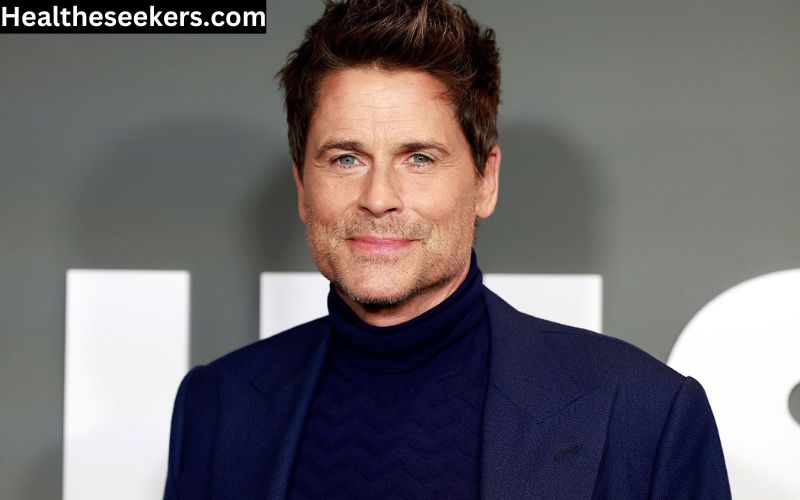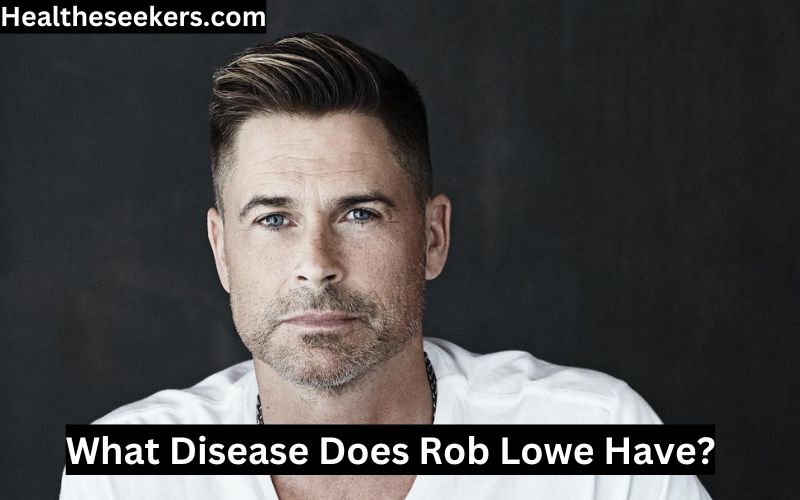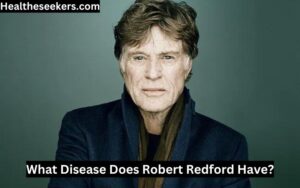Rob Lowe, the acclaimed actor, producer, and director, is not just known for his extensive body of work in television and film; he is also recognized for his candidness about personal struggles, including health issues. While many fans may wonder what disease Rob Lowe has, it’s essential to explore his health journey in a broader context, including the challenges he has faced and how he has approached them.
Who is Rob Lowe?
Rob Lowe was born on March 17, 1964, in Charlottesville, Virginia. He rose to fame in the 1980s with films like “The Outsiders” and “St. Elmo’s Fire.” His career continued to flourish in the 1990s and 2000s with hit television series such as “The West Wing” and “Parks and Recreation.” Lowe’s charisma, talent, and good looks have made him a Hollywood staple for decades.
Early Life and Career
Lowe’s early life in a politically active family shaped his worldview and career choices. After moving to Malibu, California, he was exposed to the entertainment industry at a young age. He landed his first significant role in “The Outsiders,” which opened doors for him in the film industry. Over the years, Lowe has received numerous accolades for his work, including Golden Globe nominations and a star on the Hollywood Walk of Fame.
Health Challenges and Transparency
The Role of Addiction
While many people associate Rob Lowe with glamour and success, his journey has not been without obstacles. In the late 1980s and early 1990s, Lowe struggled with addiction to alcohol and drugs. He openly discussed his battle with substance abuse in interviews and his autobiography, “Stories I Only Tell My Friends.” Lowe credits his recovery to a commitment to sobriety, a support network of friends and family, and a focus on self-improvement.
Anxiety and Mental Health
In addition to his struggles with addiction, Lowe has spoken candidly about mental health challenges, particularly anxiety. He has shared how these issues can affect both personal and professional life. Lowe emphasizes the importance of mental health awareness and encourages others to seek help when needed.

What Disease Does Rob Lowe Have?
The most significant health challenge that has gained public attention is Lowe’s battle with a condition known as Meniere’s disease. This disorder affects the inner ear, leading to symptoms such as vertigo, tinnitus (ringing in the ears), hearing loss, and a feeling of fullness in the ear.
Understanding Meniere’s Disease
Meniere’s disease is a chronic condition that impacts balance and hearing. While the exact cause of the disease is still unknown, it is believed to be related to abnormal fluid dynamics in the inner ear. Here are some critical points about Meniere’s disease:
- Symptoms: The primary symptoms include recurrent episodes of vertigo, tinnitus, hearing loss, and a sensation of fullness in the ear. These episodes can vary in duration and intensity, making daily life challenging for those affected.
- Diagnosis: Diagnosing Meniere’s disease typically involves a comprehensive evaluation by an ear, nose, and throat (ENT) specialist. Tests may include hearing assessments, balance tests, and imaging studies to rule out other conditions.
- Treatment Options: While there is no cure for Meniere’s disease, various treatment options can help manage symptoms. These may include dietary changes (such as reducing salt intake), medications, therapy for balance issues, and, in severe cases, surgical interventions.
Rob Lowe’s Experience
Lowe first revealed his diagnosis of Meniere’s disease in a candid interview, discussing how it has affected his life and career. He described experiencing sudden and intense bouts of vertigo, which can be both disorienting and debilitating. This condition can make performing, particularly in live settings, extremely challenging.
Coping Mechanisms
In dealing with Meniere’s disease, Lowe has shared some strategies that have helped him manage his symptoms:
- Healthy Lifestyle: Adopting a balanced diet, regular exercise, and adequate hydration have been crucial in managing his condition. Lowe emphasizes the importance of staying active and maintaining a healthy weight.
- Stress Management: Given that stress can exacerbate symptoms, Lowe practices mindfulness and relaxation techniques to cope with anxiety and stress.
- Support System: Leaning on family and friends for support has been vital in Lowe’s journey. He often speaks about the importance of a strong network during challenging times.
The Importance of Awareness
Rob Lowe’s openness about his health struggles has helped raise awareness about Meniere’s disease and mental health issues. By sharing his experiences, he not only humanizes the celebrity persona but also encourages others facing similar challenges to seek help and understand that they are not alone.
Public Reaction and Support
Lowe’s transparency has garnered significant public support. Fans and fellow celebrities alike have praised him for his honesty and willingness to discuss topics often shrouded in stigma. His advocacy has opened up conversations about mental health and chronic conditions, encouraging many to seek help and support.
The Broader Impact of His Journey
Rob Lowe’s journey has implications beyond his personal experience. His story illustrates the importance of addressing mental health and chronic health issues openly and honestly. Here are a few broader lessons that can be drawn from his experience:
1. Normalizing Health Conversations
Lowe’s willingness to share his struggles contributes to normalizing discussions around health challenges. This openness can reduce stigma and encourage others to seek help.
2. Advocacy for Mental Health
By discussing his anxiety and mental health challenges, Lowe emphasizes the importance of mental health care and resources. This advocacy can inspire individuals to prioritize their mental well-being and seek necessary treatments.
3. Importance of Support Systems
Lowe’s experience highlights the significance of having a robust support system. Friends, family, and professional networks can play a crucial role in recovery and coping with health issues.
4. Fostering Understanding of Chronic Conditions
Through his story, Lowe helps to demystify conditions like Meniere’s disease, educating the public about its symptoms and effects. Increased awareness can lead to better understanding and empathy for those affected.
What is Meniere’s disease, and what are its symptoms?
Meniere’s disease is a chronic inner ear disorder that affects balance and hearing. It occurs when there is an abnormal amount of fluid buildup in the inner ear, disrupting normal function. The exact cause of Meniere’s disease is not well understood, but factors such as genetics, viral infections, and autoimmune responses may contribute.
Symptoms include:
- Vertigo: Sudden and severe episodes of spinning or dizziness that can last from a few minutes to several hours.
- Tinnitus: A persistent ringing, buzzing, or hissing sound in one or both ears.
- Hearing Loss: Fluctuating hearing loss that can become permanent over time.
- Pressure or Fullness in the Ear: A feeling of fullness or pressure in the affected ear.
These symptoms can vary in intensity and frequency, making it challenging for individuals to predict when an episode may occur. Management often involves lifestyle changes, dietary adjustments, and, in some cases, medication or surgery.
How has Rob Lowe managed his Meniere’s disease, and what lifestyle changes has he made?
Rob Lowe has been open about his journey with Meniere’s disease and the steps he has taken to manage it. Managing this condition often requires a multifaceted approach, and Lowe has emphasized several key strategies:
- Dietary Changes: Lowe has focused on reducing salt intake, which can help manage fluid retention in the body and may alleviate some symptoms of Meniere’s disease.
- Regular Exercise: Staying physically active helps improve overall health and can reduce stress, which is known to exacerbate Meniere’s symptoms. Lowe incorporates fitness routines into his daily life.
- Stress Management: Since stress can trigger symptoms, Lowe practices mindfulness and relaxation techniques, such as meditation and deep-breathing exercises, to maintain his mental well-being.
- Support System: Lowe has credited his family and friends with being essential to his coping strategy. Having a reliable support network can provide emotional stability during challenging times.
- Professional Guidance: Regular consultations with healthcare providers specializing in ear disorders have been crucial in monitoring his condition and adjusting treatment as necessary.
Through these lifestyle changes, Lowe has been able to manage his symptoms and maintain his professional commitments while raising awareness about the condition.
What impact has Rob Lowe’s openness about his health issues had on public awareness and mental health advocacy?
Rob Lowe’s candid discussions about his health challenges have had a significant impact on public awareness, particularly regarding Meniere’s disease and mental health issues like anxiety and addiction. His openness serves several purposes:
- Breaking Stigma: By sharing his experiences, Lowe helps break the stigma surrounding mental health and chronic conditions. This encourages others to speak out about their struggles and seek help without fear of judgment.
- Encouraging Others to Seek Help: Lowe’s story may inspire individuals facing similar challenges to reach out for support, whether through friends, family, or professional resources.
- Raising Awareness for Meniere’s Disease: His public acknowledgment of Meniere’s disease has increased awareness of this lesser-known condition, prompting discussions and educating others about its symptoms and management options.
- Promoting Mental Health Advocacy: Lowe’s discussions around mental health emphasize the importance of self-care and seeking therapy or counseling. This advocacy can contribute to broader societal acceptance of mental health care as a critical component of overall well-being.
Overall, Lowe’s willingness to share his journey has played a role in fostering a more open dialogue about health challenges, encouraging understanding and compassion in society.
How can individuals support someone living with Meniere’s disease?
Supporting someone with Meniere’s disease requires understanding, patience, and practical assistance. Here are several ways to provide effective support:
- Educate Yourself: Learn about Meniere’s disease, its symptoms, and its effects. Understanding what your loved one is experiencing can help you provide better support.
- Be Patient: Recognize that symptoms can be unpredictable. During episodes of vertigo or other symptoms, offer patience and reassurance. Your understanding can make a significant difference.
- Encourage Healthy Habits: Support their lifestyle changes, such as maintaining a low-salt diet or exercising. Participate in activities together that promote health and wellness.
- Provide Emotional Support: Listen to their concerns and validate their feelings. Encourage open communication about their experiences, and be a compassionate listener.
- Accompany Them to Appointments: If they feel comfortable, offer to attend medical appointments with them. Having someone by their side can ease anxiety and provide additional emotional support.
- Help with Daily Tasks: When symptoms flare up, offer assistance with daily activities. This could include running errands, preparing meals, or helping with household chores.
- Create a Calm Environment: Help maintain a stress-free environment at home. Encourage relaxation techniques, and consider creating a quiet space for them to rest when needed.
- See Also: What Disease Does Robert Redford Have?
Conclusion
Rob Lowe’s journey through health challenges, particularly his battle with Meniere’s disease and his experiences with anxiety and addiction, offers valuable insights into the complexities of living with chronic conditions. His openness serves as an inspiration for many, promoting awareness and understanding of health issues that often remain hidden in society.
By sharing his experiences, Lowe not only highlights the importance of addressing mental health and chronic conditions but also encourages individuals to seek help and support. In a world where health challenges can often feel isolating, Lowe’s story reminds us that there is strength in vulnerability and that we are not alone in our struggles.




